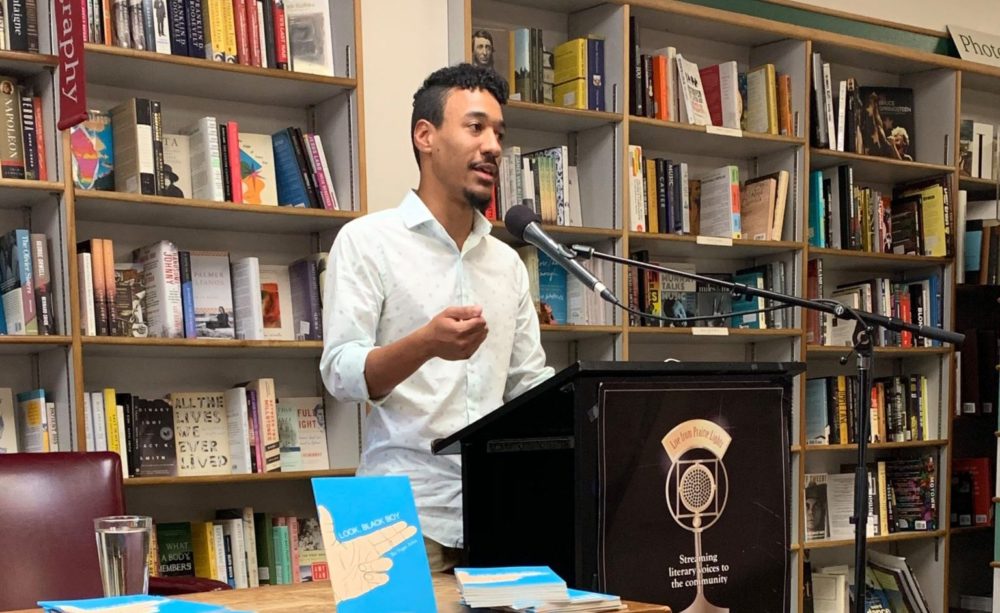I constantly have conversations with people who commend me for being a writer and within the same breath, assure me that they could never be one.
Here’s a story about one of those people.
A student of mine, we’ll call her June, regularly attends the weekly IC Speaks workshops at her school, and it’s undeniable–nearly contagious–how excited she is about writing and performing.
One week, she brought a friend (or more accurately, dragged her friend) into the workshop by the wrist, amidst groans and protests.
When I asked our visitor her name, she responded, “Carla. I’m not really a writer.”
“I know what you mean, I just like stories. We all have those.”
She seemed confused by my answer, and I couldn’t blame her. There I was, some author-teacher guy leading a whole writing workshop, and I didn’t affirm her assumption that there wasn’t space for those who didn’t identify as writers.
In fact, I did the contrary.
On that first day, Carla (though a little shy) participated in all the activities, even the freewrite time. When she shared what she wrote, when she read those words out loud, she started with a stumbling tongue and a small voice, and then shook that off.
It was as if we could see her step into her own story.
This is what it means to be a writer.
Nowadays, the word “writer” is tied to so many expectations. We find ourselves thinking “a writer must…” A writer must be trained in the ways of form, structure, and literary techniques. A writer must know about past writers. A writer must know what they’re doing. A writer must be everything I’m not.
You’re wrong!
A writer or performer is nothing more than a storyteller.
All of that extra crap is precisely that, extra crap. The idea that one must be trained in the ways of, or know all about, the eurocentric, patriarchal, elitist writers of the past is flawed and detrimental, especially in a time like this.
We need each and every person’s story told in order to progress humanity. Each perspective pushes us forward, each voice is vital.
So for those who claim not to be writers, I have one challenge for you: step into your story.
There are so many ways you can do this, and there is no wrong way. Some may say to me, “well, I don’t know what stories I have.” To that, I say look closer at your life. You are the main character of your life, if you can’t see the storyline, then you’re not reading. In other words, you must reflect.
In its simplest form, this can look like keeping a daily journal. Writing down your thoughts, feelings, and activities will help you slow down and look around, to smell the roses as they say, or perhaps, to feel the thorns. Either way, you’ll start to see your own story unfold.
For many, it’s difficult to determine what stories we want to tell–which feel worthy. There are two parts to tackling this. First we must figure out which story we truly want to tell, rather than the “right story.”
When we try to pick the “right” story, we will usually just get in our own way. To correct this, try several sessions of stream-of-consciousness writing. It’s exactly what it sounds like: a 10-, 15-, or 30-minute period of writing every thought that crosses your mind as it comes to you.
When you read what you’ve written, you will be able to see what topics, feelings, and stories your mind is circling. That’s the story you truly want to tell.
The second part is accepting that story, understanding that it’s worthy. I have to remind myself of the advice a teacher always gave me when it came to asking questions in class. He said, “if you have a question, studies show seven other students in this class have the same question, so ask for the sake of all of us.”
Which means in our writing, if our mind is circling one idea, odds are someone else’s is too. We have a synchronicity in that way. There may be a person who needs to hear your story so that they can understand their own better, or so they feel free enough to share theirs with you.
Which brings me to one of the most crucial parts of stepping into your story. You must share. Perform, read, or talk about your work. Take it off the page.
That can mean you have one friend you trust with your stories, or you have a small group of people to exchange pieces with, or you find an open mic in the next town over, or any other scenario that gets your work outside of yourself. The bottom line is, the world needs to know you. It’s depending on you.
Stepping into your story is about finding your story, owning your story, and then sharing it with the world in ways that feel right to you. Now THAT is a writer. That … is you.


